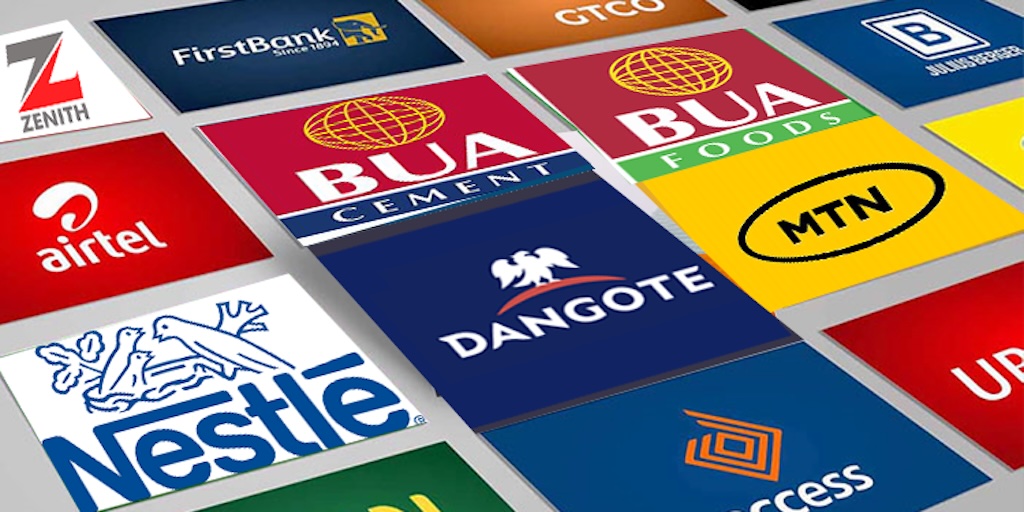Nigeria’s economic performance in recent years presents a compelling paradox that has left analysts and business leaders concerned. The nation has posted some positive headline figures: foreign direct investment reportedly increased by 32% from 2019 to 2024, bilateral trade with key partners led to a notable $2.6 billion surplus with the United States in 2024, and GDP growth is estimated at 2.9% for the same year. Despite these promising statistics, Nigeria faces a critical challenge—an accelerated exit of multinational corporations (MNCs), which has cast a shadow over its industrial prospects. According to figures from the Manufacturing Association of Nigeria (MAN), about ₦94 trillion in potential output was lost over the last five years, with over 767 manufacturing companies closing in 2023 alone, and another 335 considered distressed.
The consequences of these MNC departures are significant, touching every facet of the economy: capacity in the industrial sector is shrinking, unemployment is rising, government tax revenue is falling, and the country’s reliance on imports is growing. Major global brands across oil and gas (Shell, TotalEnergies), pharmaceuticals (GSK, Pfizer), consumer goods (Unilever, Kimberly-Clark, Nestlé), technology (Microsoft), and digital services (Jumia Food) have either scaled back or closed operations, sending ripple effects through Nigeria’s wider economy.
To fully understand these challenges, it’s essential to look back at Nigeria’s post-independence industrial evolution—from the vibrant boom decades of the 1960s and ’70s, through the turbulent reforms of subsequent decades, to the present-day scenario where divestments risk derailing economic ambitions.
In the years following independence, Nigeria established itself as a magnet for investment from major Western multinationals such as Unilever, Nestlé, Procter & Gamble, Shell, and Texaco. These corporations helped propel growth by providing employment, facilitating technology transfer, and developing local supplier networks. Key cities—including Lagos, Kano, Port Harcourt, Kaduna, and Enugu—flourished as industrial centres. During this period, Nigeria was widely seen as an aspiring economic giant, contributing actively to emerging African and global value chains. Industrial production and consumer markets both expanded, with macroeconomic stability perceived as achievable.
However, structural issues began to surface, some rooted in policies from earlier decades. The Indigenisation Decrees of the early 1970s were intended to spur local ownership of businesses, but their hurried and uneven implementation drove out much-needed foreign capital and expertise. These gaps weren’t adequately filled by Nigerian replacements, hampering industrial growth.
The challenges intensified in the 1980s, as Nigeria abruptly abandoned National Development Plans and enacted a series of fluctuating policies. The infamous Structural Adjustment Programme (SAP), implemented in the mid-1980s, led to a sharp naira devaluation and abrupt market liberalisation, without the necessary support measures for indigenous industries. Efforts to substitute imports with locally produced goods were hampered by insufficient infrastructure, unreliable logistics, and underdeveloped banking and credit systems. Many factories were left vulnerable and unable to withstand competitive pressure.
The struggles weren’t only at the macro level. Several operational and systemic problems increasingly made Nigeria less attractive for large corporations:
- Unpredictable foreign exchange regimes complicated profit repatriation and the import process for vital raw materials. Procter & Gamble and GSK, for example, pointed to severe FX shortages as factors in their decisions to exit.
- Persistent double-digit inflation rates—reaching over 57% in 1993 and remaining stubbornly high for much of the past 20 years—seriously weakened consumer spending. Companies like Kimberly-Clark reported that falling demand made local manufacturing unsustainable.
- Fluctuating policies and regulatory uncertainty impeded long-term business planning. For instance, Microsoft scaled back its Nigerian presence due to ambiguous tax obligations and unclear digital policies.
- Infrastructure deficits have continued to plague business: bad roads, overstretched and inefficient ports, and electric power supply routinely under 4,000 MW—compared to an estimated 20GW in daily peak demand. Despite attempts at reform, such as the 2001 National Electric Power Policy, issues have persisted, and companies like Nestlé cite these as barriers to competitiveness.
- Security challenges—including oil theft, pipeline sabotage, and a rise in kidnapping incidents—have increased costs and risks, especially for the likes of Shell and TotalEnergies, which have exited some onshore operations citing insecurity in the Niger Delta.
- Poor linkages between agriculture and industry left breweries and food companies such as Guinness Nigeria heavily reliant on imported inputs, compounding supply chain vulnerabilities and inflationary pressures.
- A pronounced emphasis on university degrees, to the detriment of technical and vocational training, created a shortage of skilled trade workers. MNCs faced increased costs for training or hiring expatriate staff to fill essential technical roles.
The cumulative effect of these issues has made Nigeria a tough environment for multinationals to operate profitably and sustainably. According to Lagos-based industrial analyst Ibrahim Yusuf, “While the emergence of homegrown conglomerates like Dangote Group and BUA gives hope, their full potential is limited by the same systemic challenges. Domestic players also need continued access to global partners for technology, finance, and best practices.”
In a world where capital is increasingly mobile, international firms are choosing countries that offer reliability, clarity, and profitability. For Nigeria to stem the tide of exits—and reignite its industrial engine—experts say reform is needed across multiple fronts. According to a 2024 MAN report and policy advisers, some crucial priorities are:
- Deepen the banking and insurance sector so industrial investors can access long-term, affordable credit and the risk mitigation instruments vital for recovery and growth. Successful projects like Dangote Refinery show what’s possible, but also underscore the limitations of local capital markets and financing structures for most Nigerian businesses.
- Reduce the subordination of economic decisions to short-term political factors. Institutionalising key economic policies, maintaining consistency between administrations, and broadening stakeholder consultation would help rebuild investor confidence and enable longer-term planning.
- Decentralise the national industrial strategy so states, private firms, and development agencies can better respond to local conditions. Allowing regions to innovate, offer unique incentives, and develop tailored industrial policies could strengthen Nigeria’s resilience and investment appeal.
- Invest aggressively in vocational education, polytechnics, and technical skills training, while fostering partnerships between industry and academia. This will help fill the gap for skilled technicians, factory workers, and managers capable of supporting industrial operations.
- Commit to clear, measurable infrastructure targets for electricity, transport, ports, and digital connectivity. Sector-specific incentives and public-private partnerships are sorely needed to reduce the high costs and risks of doing business in Nigeria. A comprehensive and rolling National Development Plan, with clear tracking and accountability, would be a step forward.
- Strengthen farm-industry supply chains by supporting agribusiness clusters and encouraging local sourcing of raw materials. This strategy not only reduces import-related vulnerabilities but also stabilizes costs, enhances food security, and bolsters the manufacturing sector.
- Establish transparent, predictable business regulations and ensure these are consistently enforced. Areas needing attention include taxation, import/export, foreign exchange management, and digital sector governance. Clear rules make investment decisions easier and safer for both domestic and foreign investors.
- Enhance security infrastructure in industrial areas, including better surveillance, rapid response systems, and community engagement. Reducing risks of theft, sabotage, and insecurity could lower insurance premiums and overall business costs.
Addressing these deeply interconnected obstacles would not only retain the interest of multinationals but might also attract a new wave of strategic partnerships and foster organic, sustainable growth. It’s a question of both stopping the industrial haemorrhage and nurturing the foundations for a new era of job creation, improved livelihoods, and economic diversification.
Nigeria now finds itself at a crossroads. Without meaningful reforms and decisive action—in industrial policy, governance, power, transport, and skills—the outflow of investment and expertise will likely continue, with consequences for jobs, competitiveness, and social stability. With coordinated effort from both government and the private sector, however, Nigeria could rebuild trust with investors, strengthen domestic industries, and reclaim its status as the industrial heartbeat of Africa.
What practical steps do you think will help keep major investors and manufacturers in Nigeria? Share your perspective below, and don’t forget to follow us for more in-depth business coverage and updates on reforms shaping Nigeria and West Africa’s future.
Have a business story or tip you want to share or even sell? We’d love to feature your experience and insights! Reach out to us at story@nowahalazone.com for story submissions or to discuss story sales.
Stay updated with the latest business news, industry trends, and economic reforms by following us on social media: Facebook, X (Twitter), and Instagram.
Got an opinion on Nigeria’s business climate or want to join the discussion? Drop your thoughts in the comments. Your voice matters!










